
NEWS
Quickfire: Singer Engelbert Humperdinck on meeting princesses and a honeymoon in Paris
By JOHN KOSKI
PUBLISHED: 19:01 EST, 1 December 2018 , Daily Mail
The balladeer discusses poetry, pink excess and the one thing he won’t eat at Christmas…
Guilty pleasure? A pint of bitter and a bag of crisps when I return to the UK.
Where is home? Mostly Bel Air, Los Angeles. But I still have a property with its own pub and magnificent gardens in a village outside Leicester.
Career plan B? Music was my destiny and I’m grateful that I didn’t have to reinvent myself.
Biggest bugbear? Rude drivers.
Secret to a happy relationship? Tenderness goes a long way.
Most romantic thing you’ve ever done? Take my wife Patricia to Paris for our honeymoon in 1964 when we had very little money.
Your perfect Christmas dinner? Roast pork, chicken, all the trimmings – but never turkey. I had a pet turkey called Fidget as a boy and have never eaten it.
Dream dinner-party guest? Winston Churchill – I would love to find out the stories behind his great quotes.
Advice to teenage self? Education is so important to be able to navigate your way through life. I left school at 15 and I wish I’d known then what I know now.
Cat or dog? We’ve had 22 dogs over the years and currently have a black and white cross called Shirley.
Starstruck moment? Meeting Cary Grant.
Big break? Taking the place of Dickie Valentine on the Sunday Night at the London Palladium TV show in 1967 when he fell ill. It led to me recording ‘Release Me’.
Career highlight? Meeting Princess Grace of Monaco when I went there to do a charity gala for the Red Cross.
Secret skill? I love writing poetry.
One thing that would make your life better? Peace of mind – I’m a worrier.
Philosophy? Simplicity is the essence of success.
Last film that made you cry? The Notebook. My wife has Alzheimer’s, so the film is very close to home.
First record you bought? ‘When I Fall in Love’ by Nat King Cole, which I bought for Patricia, my then girlfriend.
Celebrity crush? As a teenager I loved the actress Jane Russell.
Best Christmas present you ever received? An old red telephone box from my wife.
Most extravagant purchase? The Pink Palace, Jayne Mansfield’s former mansion, which I owned for 27 years.
Biggest fear? Sharks.
Happiness is… A good pair of sideburns that serve you well throughout your life.
Engelbert Humperdinck Celebrates 50 Years in Music and New Christmas Album
NOVEMBER 29, 2018 –PARADE - DR. NANCY BERK With record sales of over 150 million and more than 50 years in the business, Engelbert Humperdinck knows a thing or two about career longevity. And he continues to love his job. Still touring at age 83, the singer who found fame as a top recording artist and chiseled-featured heartthrob, wouldn’t have it any other way. “It’s one of my favorite, favorite things, walking on stage. I love it and I’ll keep doing it, until, you know, until I can’t sing anymore, but I think that’s so far away,” says Humperdinck. Adorned with gold and platinum albums, the walls of his home reflect the musical success he has enjoyed since the ’60s with hits like “Release Me” and “After The Lovin.’” The artist says that it is the length of his career that has most surprised him. Few in the music industry expect their star to shine for decades. Humperdinck credits his fans with making his success story so sweet. “I think it’s all due to my following. I have a very staunch following and I’ve had fan clubs all over the world. And these people I term as my ‘cheerleaders’— my ‘spark plugs.’ And they’ve carried me along for all this time and they’re still there for me right now. And you know, as I go out on the road and I walk on stage, I can feel their presence…and it’s just wonderful.” It’s not unusual for Humperdinck to perform for an audience that spans three and four generations. “I think that’s what’s given me the longevity in this industry and I’m truly pleased about it. If you have one age group they kind of go away from you, but when you have all ages, it stabilizes your career,” Humperdinck says. Did he ever find it exhausting being labeled a “heartthrob”? Humperdinck modestly slides past the question. “It’s not exhausting. No. You kind of get used to it, you know…You get used to the routine, you get used to the traveling, you get used to everything.” This holiday season, Humperdinck has gifted fans with a little more music, releasing a new album Warmest Christmas Wishes. Celebrating a season that he has loved since childhood, Humperdinck, one of 10 children, sings many of his favorites including “Please Come Home for Christmas” and “Silent Night,” along with some new and reinvented tracks. His first holiday album in nearly 40 years, Humperdinck believes this album’s appeal comes from the mix of classics and unique tracks with strong family ties. “I found it great recording it, and I hope people like listening to it.” What will the artist be doing for the holidays? He’ll wrap up touring for a bit and enjoy the month of December with family in Los Angeles. “And from one of my tracks on my album— I’ll be home for Christmas,” says Humperdinck. Listen to Warmest Christmas Wishes on Amazon.
GoFundMe for Johnny Harris
On this #givingtuesday I’d like to bring my dear friend, Johnny Harris, in to your hearts. Our relationship spans all the decades of my professional life and his talents have given incredible magic quality to many wonderfully crafted songs songs that have been privileged to record. We always talked about Johnny’s arrangements having everything including the kitchen sink in them. The bed of strings I request to sing to in an arrangement, was a habit I acquired after working with Johnny. To my musician friends and fans of this amazing arranger, music director and composer, could you show him some love and share the post. My band can attest to his gentleman ways and legendary talent as they all worked together while prepping for the 50th Anniversary Tour. It’s always so good to circle back and work with those who helped make it happen! My sincere thanks for your support and prayers. https://www.gofundme.com/johnny-harris-quotthe-maestroquot-…
Engelbert Humperdinck Live in Hawaii
Don’t miss your chance to watch Engelbert Humperdinck Live in Hawaii on PBS starting November 24th. A list of broadcasts by city can be found here. Please check your local listings for exact dates and times. Aloha!
On the Scene with Engelbert Humperdinck
By John Berger, November 18, 2018 Honolulu Star Advertiser Americans discovered Engelbert Humperdinck in 1967 when Parrot Records released “Release Me,” a bittersweet request from the singer to someone he no longer loves to “please release me, let me go.” The song reached No. 4 on the Billboard Hot 100 singles charts and was the start of a career that is continuing more than 50 years later. The possibility that Hurricane Lane might devastate Honolulu didn’t keep Humperdinck, 82, from appearing as promised for two shows at the Hawaii Theatre in August. The shows were filmed for a PBS holiday special, “Engelbert Humperdinck in Hawaii,” which premieres at 7 p.m. Saturday on PBS Hawaii. Going back to the beginning, did you expect “Release Me” was going to be a hit? You expect things to happen, but (“Release Me”) sat down for three months on a shelf and it didn’t move. Then all of a sudden my manager got a phone call to say, “Is he available to do (TV show) ‘Sunday Night at the London Palladium?’ ” I sang “Release Me,” and the next day — bingo! Can you believe what that song did for me? It gave me a global career. How did you meet Elvis Presley? He came to see my show at the Riviera (in Las Vegas) and he came in done up to the nines — he was wearing his cape and everything. Of course I found out he was in (the room) and I was very nervous. I introduced him, he stood up on the table and opened his cape, and the audience went berserk for 10 minutes. I’m not joking. He stopped the show for 10 minutes! But afterward we became great friends. He taught me stagecraft, humility and not to take yourself too seriously. What can you tell me about the show we’re going to see on PBS Hawaii? I’ll be singing the standards that people expect me to sing and songs from my new pop album, “The Man I Want to Be.” There’s a song (on the album) written by Bruno Mars, “Just the Way You Are.” I’ve given it a different treatment altogether than he does — nobody can sing it like he does — but I’ve given it a different format, it’s more romantic and a little bit slower. It is true that Bruno performed for you when he was the world’s youngest Elvis? Yes it is. Many years ago my fan club had a party here for me and the entertainment was a little 5-year-old boy — Bruno. I said to him then, “Young man, you are going to be a big star” — well, he’s not a big star, he’s a megastar. You mentioned learning some stagecraft from Elvis. Are there other entertainers who influenced you? I learned a lot from watching Ray Charles, and Dean Martin. Dean was one of my favorite entertainers. He was another guy who never took himself too seriously. What else are you doing these days? I’m making albums — I’m very proud of my new Christmas album, “Warmest Christmas Wishes.” It’s a good album. And I try to stay with my wife as much as possible. She’s not well but she’s making some progress. Have you ever met any descendants of the other Engelbert Humperdinck — the 19th–century German composer? No, but I was asked the other day if I wrote (the 19th-century Humperdinck opera) “Hansel und Gretel.” I said, “Are you crazy? You’re talking about something that was written in 1893.”On the Scene with Engelbert Humperdinck
Darren Paltrowitz Interview with Engelbert
Engelbert Humperdinck is a legendary singer with a career spanning almost 50 years. He has generated sales in excess of 140 million records -- including 64 gold albums and 23 platinum -- and 4 Grammy nominations. His latest album is Warmest Christmas Wishes.
Interview starts at 13:08
TJ Lubinky Interviews Engelbert
Get in the holiday mood with Diana Ross, John Legend, more
By The Associated Press Engelbert Humperdinck, “Warmest Christmas Wishes” (OK! Good Records) Engelbert Humperdinck seems like a natural choice for frequent collections of Christmas songs, but “Warmest Christmas Wishes” is his first in nearly four decades. Last year’s “The Man I Want to Be” showed the now 82-year-old singing with gusto and updating his repertoire with songs from Bruno Mars and Ed Sheeran. Here he doesn’t come so near to the present, covering Chris Rea’s “Driving Home for Christmas” and Gilbert O’Sullivan’s “Christmas Song (I’m Not Dreaming of a White Christmas)” and the arrangements stay close to the “holidays with strings” sort. Also on board are Frank Loesser’s “What Are You Doing New Year’s Eve?” as well as “O Tannenbaum,” in a bilingual German-English version. The German influence continues with “Leise rieselt der Schnee,” which also gets a separate, English-language adaptation — “Silently Falls the Snow.” The album also includes Austrian evergreen “Still, Still, Still” (in English only) and some original compositions like “A Christmas for the Family.” Humperdinck’s album radiates calm, so it’s probably best played when soothing sounds are most appreciated, not, for example, when the children are tearing the wrapping paper off their gifts. On second thought, maybe that’s exactly when it could be most effective. — Pablo Gorondi (twitter.com/PabloGorondi)
Engelbert Humperdinck coming to Montreal
Engelbert Humperdinck never wanted to be a singer. A career in music, yes, but he was extraordinarily shy. The youngest boy of a family of ten children originally from Leicester, England, he grew up in Madras, India, where his father was stationed during World War II. Engelbert’s childhood was dominated by the love of his parents and his brothers and sisters. He knew he could sing harmonies, but the power of his own voice came as a surprise to him and other people. “It’s just so loud, but I discovered I can be tender with it at the same time.”
Like all great icons, he is a man of great depth – masculine and loving, shy inside and uninhibited onstage, prepared to play the sex god to the hilt and still, at this stage of his career, managing to get away with it. “My mother’s side of the family had the signing voice so I must have inherited that from her. My father was a man’s man – strong, athletic, charismatic. And I like to do all kind of men things. I love sports, golf, tennis martial arts, soccer, skiing, but at the same time, yes I do appreciate women.”
In a career spanning almost 50 years, Engelbert has generated sales in excess of 140 million records, including 64 gold albums and 35 platinum, four Grammy nominations, a Golden Globe, and stars on the Hollywood Walk of Fame, Las Vegas Walk of Fame, and Leicester Walk of Fame. He has performed for the Queen four times, several presidents and many heads of state. He has recorded everything from the most romantic ballads to movie theme songs, disco, rock, and even gospel. His unique voice has charmed millions of fans around the globe. However, it’s not just the voice, but the man himself, with his endearing sense of humor and self-deprecating jokes. Engelbert has managed to strike a new chord with a younger generation after appearing on MTV several times.
Engelbert entered the world as Arnold George Dorsey. At the age of 11, he started studying music and playing the saxophone. When he was 17, Engelbert found himself playing at a pub that sponsored a singing contest. Goaded by his friends to enter, he put down his sax and for the first time revealed another vocal talent: impersonations. Arnold George Dorsey gave an incredible impersonation comedian of Jerry Lewis – and was quickly dubbed Gerry Dorsey by his fans. It soon became his professional stage name.
Gerry Dorsey was very popular on the UK music circuit and in 1959 he released a single called, “Crazybells/ Mister Music Man” on Decca Records. However, he contracted tuberculosis, which silenced him for six months and nearly ended his rising music career. Upon regaining his health, Gerry Dorsey knew he had to end his former image to make a comeback as a strong, dynamic performer. A former manager suggested the new name, Engelbert Humperdinck, taken from the Austrian composer who wrote Hansel and Gretel. It was outrageous enough to be memorable. And thus was born the soon-to-be legend, Engelbert Humperdinck.
Engelbert exploded on to the music scene in the sixties with The Beatles and the Rolling Stones. His sixties did not so much swing as rage. The shy handsome boy catapulted almost instantly to world icon. He became great friends with Elvis Presley and the two legends often performed each other’s songs. His first single in the charts was “Release Me,” which went into the Guinness Book of Records for achieving 56 consecutive weeks on the charts. It was No. 1 in 11 countries. The song was re-released after being used for a UK national television commercial for John Smith’s beer.
The following decades saw Engelbert touring the world to sell-out crowds. Engelbert seems to take great pleasure in every moment on stage, a place where he can lose his inhibitions and no longer be the child who was once shy. Engelbert’s music has transcended time and his voice still continues to reach out to people now serving to transport and inspire, to embrace and to provoke feelings and emotions…ingredients that are no doubt the essence of his long-lasting success.
http://mtltimes.ca/Montreal/entertainment/musics/engelbert-humperdinck-coming-to-montreal/
Engelbert Humperdinck is convinced that with his help his beloved Patricia is getting better
PUBLISHED: 17:31 EST, 9 November 2018 | UPDATED: 04:55 EST, 10 November 2018, DAILY MAIL
A career spanning more than 50 years, record sales of more than 150 million and friendships with legends such as Elvis Presley and Dean Martin might be accomplishment enough for most people.
But Engelbert Humperdinck, purveyor of classics such as Release Me and The Last Waltz, has yet another, rather surprising string to his bow.
He chanced upon it several years ago while on tour in Germany.
Suffering from a viral infection that he hadn’t been able to shake for over four months, Engelbert visited an iridologist – an alternative therapist claiming to diagnose health problems by studying the eye’s iris – who cured him within two weeks.
‘He then said to me, “You have healing powers”, so of course I just laughed at him,’ says Engelbert.
‘But he insisted I had an aura. So I pray over people and sometimes it works.
‘There was a lady in Leicester who had cancer and came to see me for treatments.
'She’d been given about six weeks to live, but she lived another nine years, so maybe I’m part-ly responsible.
'Another guy I knew had Bell’s palsy [a type of facial paralysis] and his mouth was up here,’ he says, pulling his lip upwards.
‘I prayed for him and within three minutes his lip came down. People think I’m crazy, but I don’t care. If I can help somebody in any way, that’s fine by me.’
Engelbert, or ‘Enge, as in Stonehenge’, is himself looking in fine fettle.
Now 82, he could pass for a good couple of decades younger, courtesy of that trademark lushly coiffed hair (‘I’ve been dyeing it since my 20s, but it’s still all mine,’ he says, giving it a sharp tug) and a newly-honed physique.
He has a new Christmas album coming out, ‘and I also recently filmed a special in Hawaii, so I decided to lose some weight.
'I’ve been drinking shakes, working out in my gym and spending half an hour in my sauna. I’ve lost two stone.
'I also lie on my deck to get a tan, but I don’t use regular suntan lotion – I use a mixture of olive oil and vinegar.
'It makes your skin smooth and darkens you in a real hurry.
'Here, look,’ he says, helpfully ripping open his shirt and displaying an impressively taut, tanned expanse of chest. ‘I’m in good health.’
While Engelbert appears to be in scant need of his own healing powers, he admits that the one person in the world he would most like to help is sadly beyond his reach.
'With any healer, they say that the only person they can’t help is their spouse because they’re too close. I still pray over my wife, though. I do everything I can.’
Just over ten years ago, his wife Patricia, now 79, was diagnosed with Alzheimer’s and has 24-hour care at the family home in Bel Air, California, where we meet.
The couple have been together for 62 years and have four children. Engelbert’s eyes moisten as he talks about his wife.
‘She’s doing OK considering that she’s had it for the past ten years,’ he says.
‘In fact, she still knows me and knows everybody. Our son Scott came over from Australia a couple of days ago and she called him by his name.
'That’s totally unheard of because after ten years [of Alzheimer’s], nobody can say people’s names like that.
'And when Scott went back to Australia, she cried, so she knows who he is.
‘But we’re doing everything we can to help her. I have acupuncturists see her, as well as my regular doctor, who’s wonderful.
'I also have people from the holistic world and I’ve taken her to see healers. I want her to see everybody because I think it’s important to investigate every avenue.
'Somebody will touch that nerve that will help cure her. That’s what I’m looking for and I’ll search until I find it.’
Although there is no cure as yet for the disease, Engelbert remains touchingly and firmly convinced that his wife’s health will improve.
‘She’ll be back. I know she will,’ he insists.
‘And she’s already shown signs of improvement. Before, if you walked into her room, she’d just stare, but now she’ll turn around and look at you and smile.
'It’s wonderful to see the changes taking place. When the kids come over, she remembers them. And she remembers me.
‘Whenever I go in to see her, she puckers up for a kiss.
'Oh God, she gives me a lovely kiss every time,’ he grins, ‘so I don’t kiss her just once, I kiss her several times to make sure my lips are registered in her mind.
'It’s quite wonderful. But of course I miss her. We’ve been married for 54 years and I miss her in my boudoir.
'I miss holding her at night very much and feeling her presence.’
He first noticed a problem when Patricia started to forget phone numbers, ‘and when we got the diagnosis, it was such a shock’, he says.
‘But right from the start, I wanted to take care of it.
'I heard from a good friend about a doctor in Germany who did stem cell operations, so I took her over there immediately and paid a large amount to have this operation done.
'They said if she had this operation she’d be OK, but it didn’t work.
'This was about eight years ago and I think it was a little early in the stages of stem cell therapy at that point.
'But who knows? Maybe it contributed to her longevity, which I’m thankful for. But she gets good medical attention and as long as I have a breath in my body, I’ll provide that.
‘She doesn’t speak too much,’ he continues, ‘but I think it’s important to talk to her like there is nothing wrong because I know she can still understand.
'I’ll go in to see her and say, “Good morning, my darling”, and sometimes she’ll say, “Good morning” back, and sometimes not.
'But when I say, “How’s my baby?”, she’ll sometimes say, “You’re my baby”, which is wonderful.
'I pick her up and try to hold her. She doesn’t walk very well right now, but she will walk again, I promise you.
'I’m doing everything I can, and I have faith.’
While Engelbert’s optimism is moving, in quieter moments he admits that his wife’s condition can be hard to bear.
‘It is difficult,’ he says. ‘When I’m performing, sometimes a lyric will touch on my personal life and it can be difficult to sing.
'For instance, when I sing How I Love You, I’ll choke up.
'But I think my audience understands and forgives me. My last album, The Man I Want To Be, is really a love letter to my wife.
'I don’t really talk to anyone about her illness and I try to cope as best I can on my own. It is what it is and you just have to take care of your responsibilities.
'A lot of people would have put their wife or husband in a home, but that never crossed my mind.
'But I do miss my wife, our communication,’ he says. ‘It’s lonely at times without her.’
It was love at first sight when the couple met in 1956 at the Palais de Danse in Leicester, where Engelbert grew up (he was born in Madras, India, and moved to Britain aged 11).
Just 20 years of age and then plain old Arnold Dorsey, he was trying to make a name for himself as a singer.
The couple married in 1964 and, a year later, he teamed up with manager Gordon Mills, who also managed Tom Jones.
Mills convinced young Arnold Dorsey to change his name to the much more memorable Engelbert Humperdinck and success shortly followed.
He had a No 1 hit in 1967 with Release Me – notable for spending 56 weeks in the charts and for being the song that prevented The Beatles from attaining their 12th consecutive chart-topper with double A-side Penny Lane/Strawberry Fields Forever – and the couple went from living in a tiny flat in London’s Hammersmith to having a Beatle as their neighbour in a luxurious enclave in Surrey.
‘We had a dog named Cheb,’ he says, ‘and he used to go down to John Lennon’s house and steal the bread from his doorstep.
'John would shout out, “Tell that Humperdinck to get his bloody dog tied up!”’
Elvis was a friend (he even copied Engelbert’s sideburns), as was Dean Martin, who used to rent Engelbert’s Las Vegas home when he was away.
‘I’d come back to the house and find cigarette burns on the furniture,’ he says, ‘but I never said anything because I adored the man.’
While Engelbert continued to enjoy huge worldwide success, by the late 1970s he had severed ties with Gordon Mills.
He now refers to the move as, ‘the worst business decision I ever made, because I didn’t realise I had to give up all my possessions in the company and basically start from scratch again – his lawyers bamboozled me quite a lot’.
It also led to a decades-long feud between Engelbert and Tom Jones, who, says Engelbert, never really forgave him for not staying with Mills.
‘But I’m still here, still working. My walls are covered in gold and platinum albums and maybe it’s because of the amount of albums I’ve sold that he’s got a bee in his bonnet about me.
'Because,’ he says with a grin, ‘I’ve sold double what he’s sold!’
When Tom Jones’s wife of 59 years, Linda, died of cancer two years ago, did Engelbert get in touch? ‘Oh yes, I sent my condolences,’ he says, ‘but I never got a reciprocation.
'But that’s OK. I played my part. And I would shake his hand in a heartbeat.
'It was so sad when Linda died as she was a lovely girl. She was a very dear friend of my wife too.
'Tom likes my wife and my family – he just doesn’t get along with me and I don’t know why because I tried to make up with him many times.
'I hate holding grudges.’
The froideur between the two men exists despite, or perhaps because of, them having more in common than they care to acknowledge: those magnificent voices, the longevity of their careers and, of course, their fondness for women.
Neither has made a secret of the fact that they haven’t always been faithful in their marriages (Engelbert once claimed he’d had ‘more paternity suits than casual suits’) and as he says now, ‘You think the grass is going to be greener, but you find it’s not.
'I think it’s because you only live one life and want to try things out, so you do.
'Yes, I hurt my wife, but my true love has always been where it began.’
He admits that he was never confident about his looks.
‘I was very unsure of myself when I was young and an ugly little beggar with protruding teeth, so I used to lie on them at night to try to straighten them’, and concedes he was, ‘flattered by all the attention I got from women.
'There have been temptations along the way, and if you’re in this business you’re expected to get that sort of thing happening.
'But I’m living a very happy and contented life now.’
Does he still get women throwing their underwear at him on stage? ‘Sometimes. And it was wonderful when it used to happen,’ he admits.
‘I used to have truckloads of them, and after the show I’d give them to memorabilia museums.’
His fan base is still considerable, although it perhaps doesn’t include the voting panel of the Eurovision Song Contest, who placed him second last in the 2012 competition – something that still slightly rankles.
‘Half the performers were not professional,’ he says, ‘and one act was cooking on stage’.
The Russian entry featured six singing grannies who opened their performance by sticking some bread in an oven; they came second.
‘But I was proud to represent my country.’
He still tours, but admits he finds it difficult, ‘because I don’t like to leave my wife.
'As soon as I get to the airport, I’ll call home and ask, “How’s my baby?”, and when I get to the other end I’ll call again.
'I miss taking her to the shows – she used to come until a couple of years ago. But she’ll be back.
'We still have a home in Leicester and I’m hoping my wife will be more capable of travelling next year so that we can spend next Christmas in England.’
It’s a festive time that’s always been important to Engelbert and his latest album, Warmest Christmas Wishes, will be his first Yuletide offering in four decades.
Featuring classics such as Silent Night and White Christmas, as well as hits such as Chris Rea’s Driving Home For Christmas and his pal Gilbert O’Sullivan’s Christmas Song, it is proof that Engelbert’s honeyed vocals, like the man himself, are still going very strong.
Interview over, he shows me into the dining room and offers me ‘some moonshine a friend made for me’ – it almost takes my head off, but has no discernible effect on The Hump, who’s clearly made of sturdy stuff.
‘Oh, I am,’ he says.
‘People always ask me when I’m going to retire, and I say, “What for?” As long as I have a career and a following, why should I stop? The best feeling I get is when I walk on stage. And,’ he adds, ‘I’ll keep going until God calls me.’
Warmest Christmas Wishes is released on Friday.

 All About Love
All About Love You’re The First, The Last, My Everything
You’re The First, The Last, My Everything Regards
Regards Sentiments
Sentiments Reflections
Reflections Warmest Christmas Wishes
Warmest Christmas Wishes The Man I Want to Be
The Man I Want to Be  The Complete Decca Studio Albums
The Complete Decca Studio Albums Engelbert Humperdinck - 50
Engelbert Humperdinck - 50 Duets
Duets Christmas CD
Christmas CD Runaway Country
Runaway Country Engelbert Calling
Engelbert Calling Released
Released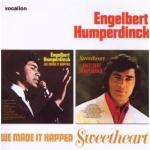 We Made It Happen/Sweetheart
We Made It Happen/Sweetheart My Love/King of Hearts
My Love/King of Hearts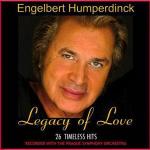 Legacy of Love Disc 2
Legacy of Love Disc 2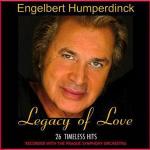 Legacy of Love Disc 1
Legacy of Love Disc 1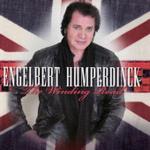 The Winding Road
The Winding Road 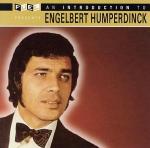 An Introduction to Engelbert Humperdinck
An Introduction to Engelbert Humperdinck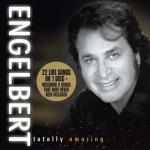 Totally Amazing
Totally Amazing 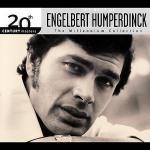 Best of Engelbert Humperdinck: The Millenium Collection
Best of Engelbert Humperdinck: The Millenium Collection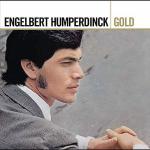 Gold
Gold Let There Be Love
Let There Be Love  Love Songs and Ballads
Love Songs and Ballads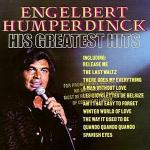 His Greatest Love Songs
His Greatest Love Songs  Release Me
Release Me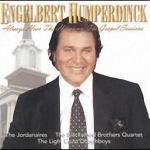 Always Hear the Harmony: The Gospel Sessions
Always Hear the Harmony: The Gospel Sessions 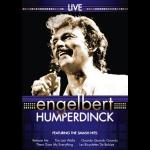 Engelbert Humperdinck Live
Engelbert Humperdinck Live  Definition of Love
Definition of Love 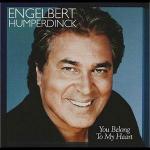 You Belong to My Heart
You Belong to My Heart ![Love is the Reason [DM]](/images/g_image_thumb/music-000072.jpg) Love is the Reason [DM]
Love is the Reason [DM]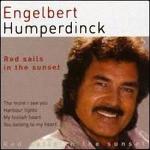 Red Sails in the Sunset
Red Sails in the Sunset 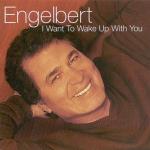 I Want to Wake Up With You
I Want to Wake Up With You 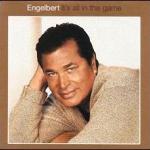 It’s All in the Game
It’s All in the Game 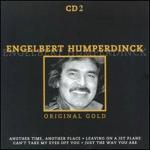 Original Gold Vol. 2
Original Gold Vol. 2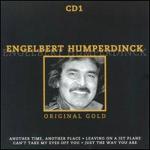 Original Gold Vol. 1
Original Gold Vol. 1 Evening with Engelbert Humperdinck & the Royal Philharmonic Orchestra
Evening with Engelbert Humperdinck & the Royal Philharmonic Orchestra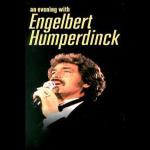 An Evening with Engelbert Humperdinck
An Evening with Engelbert Humperdinck 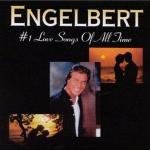 #1 Love Songs of All Time
#1 Love Songs of All Time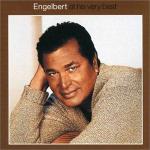 At His Very Best
At His Very Best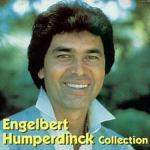 The Engelbert Humperdinck Collection
The Engelbert Humperdinck Collection 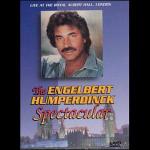 Live at the Royal Albert Hall
Live at the Royal Albert Hall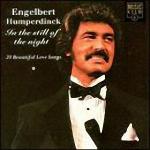 In the Still of the Night: 20 Beautiful Love Songs
In the Still of the Night: 20 Beautiful Love Songs![Dance Album [Bonus Track]](/images/g_image_thumb/music-000056.jpg) Dance Album [Bonus Track]
Dance Album [Bonus Track]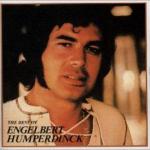 The Best of Engelbert Humperdinck Live
The Best of Engelbert Humperdinck Live 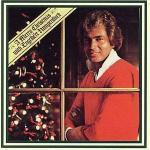 Merry Christmas with Engelbert Humperdinck
Merry Christmas with Engelbert Humperdinck![Evening with Engelbert Humperdinck 2 [Live]](/images/g_image_thumb/music-000054.jpg) Evening with Engelbert Humperdinck 2 [Live]
Evening with Engelbert Humperdinck 2 [Live] ![Evening with Engelbert Humperdinck 1 [Live]](/images/g_image_thumb/music-000053.jpg) Evening with Engelbert Humperdinck 1 [Live]
Evening with Engelbert Humperdinck 1 [Live]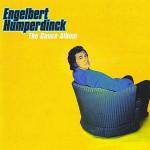 The Dance Album
The Dance Album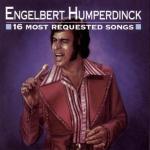 16 Most Requested Songs
16 Most Requested Songs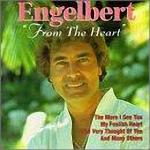 From the Heart
From the Heart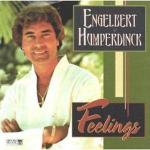 Feelings
Feelings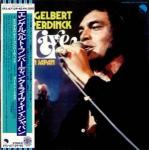 Live in Japan
Live in Japan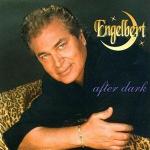 After Dark
After Dark You are So Beautiful
You are So Beautiful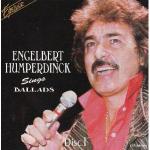 Sings Ballads
Sings Ballads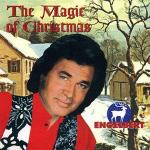 The Magic of Christmas
The Magic of Christmas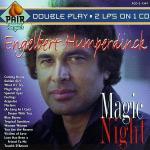 Magic Night
Magic Night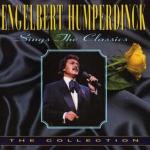 Engelbert Humperdinck Sings the Classics
Engelbert Humperdinck Sings the Classics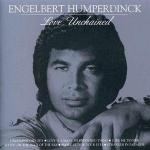 Love Unchained
Love Unchained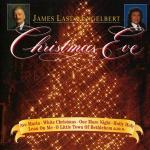 Christmas Eve
Christmas Eve Engelbert I Love You
Engelbert I Love You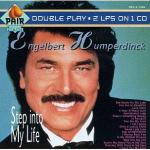 Step into My Life
Step into My Life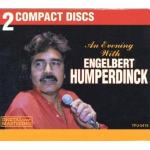 An Evening with Engelbert Humperdinck
An Evening with Engelbert Humperdinck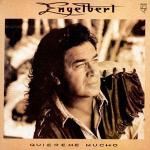 Yours: Quiereme Mucho
Yours: Quiereme Mucho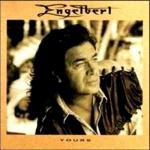 Yours
Yours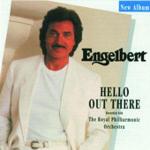 Hello Out There
Hello Out There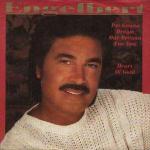 Engelbert Heart of Gold
Engelbert Heart of Gold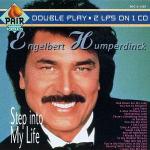 Step into My Life
Step into My Life Love is the Reason
Love is the Reason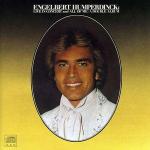 Live in Concert/All of Me
Live in Concert/All of Me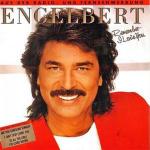 Remember I Love You
Remember I Love You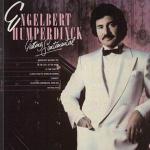 Getting Sentimental
Getting Sentimental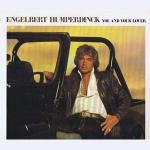 You and Your Lover
You and Your Lover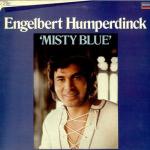 Misty Blue
Misty Blue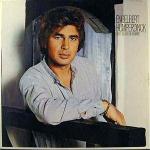 Don't You Love Me Anymore?
Don't You Love Me Anymore?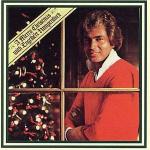 A Merry Christmas with Engelbert Humperdinck
A Merry Christmas with Engelbert Humperdinck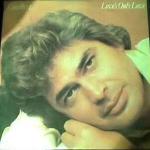 Love’s Only Love
Love’s Only Love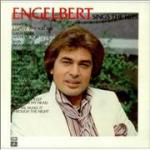 Engelbert Sings the Hits
Engelbert Sings the Hits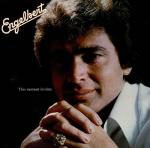 This Moment in Time
This Moment in Time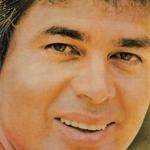 Love Letters
Love Letters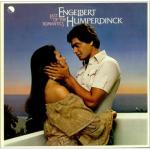 The Last of the Romantics
The Last of the Romantics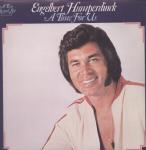 A Time For Us
A Time For Us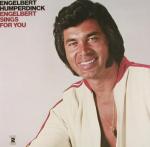 Engelbert Sings For You
Engelbert Sings For You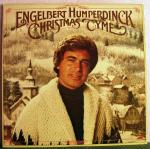 Christmas Tyme
Christmas Tyme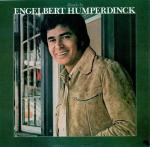 Miracles
Miracles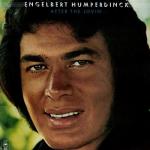 After the Lovin’
After the Lovin’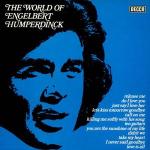 The World of Engelbert Humperdinck
The World of Engelbert Humperdinck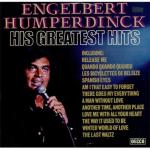 Engelbert Humperdinck His Greatest Hits
Engelbert Humperdinck His Greatest Hits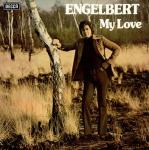 My Love
My Love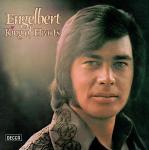 Engelbert King of Hearts
Engelbert King of Hearts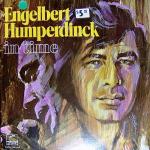 In Time
In Time Live at the Riviera Las Vegas
Live at the Riviera Las Vegas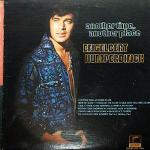 Another Time, Another Place
Another Time, Another Place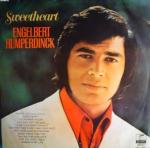 Sweetheart
Sweetheart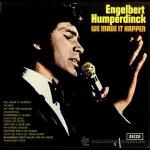 We Made It Happen
We Made It Happen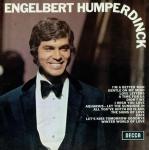 Engelbert Humperdinck
Engelbert Humperdinck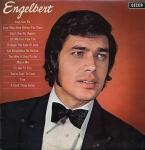 Engelbert
Engelbert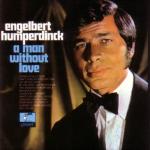 A Man Without Love
A Man Without Love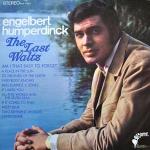 Last Waltz
Last Waltz Release Me
Release Me